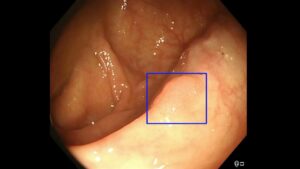BSG AI Task Force
The AI Task Force is a group of British Society of Gastroenterology members who have a specialist interest in the rapidly developing area of artificial intelligence as it applies to gastrointestinal medicine. The Group is under the auspices of the British Society of Gastroenterology Research Committee. The group was formed in 2021 and includes over 30 members who meet four times a year. The focus is to identify the key needs of gastroenterologists and their patients in service delivery, research, and teaching. The group has formed special interest groups (SIGs) in each of these areas, as well as SIGs for natural language processing (NLP) and disease-specific areas including inflammatory bowel disease. The quarterly plenary meetings ensure that all the groups continue to work together for the common good.
Special Interest Groups
The task force had formed specific SIGs to reflect its key focuses below.
The AI in Clinical Practice group is an exciting and dynamic group of gastroenterologists with a keen interest in AI. The group will work with other special interest groups to explore how AI can be used reliably, safely, and effectively in clinical practice. This group will aim to develop BSG standards for AI adoption and implementation. The broad applications include computer vision, machine learning, quality control, and remote monitoring technology. These areas will be discussed including the medicolegal and ethical aspects which may impact the delivery of AI in clinical practice. Longer term goals will be to collaborate with AI academia and industry to leverage the rapid access to technology.
Training in AI
Artificial Intelligence in gastroenterology is a rapidly developing field, which will aid detection, recognition, and quality in endoscopy and medicine as a whole. As the technology advances, it is essential that the integration and training of the use of this technology is developed alongside to ensure there is an understanding by practicing clinicians where this fits into their practice and how it can benefit their patients.
The training sub-committee for AI will work to produce guidance and practical training advice for gastroenterologists to assist with the adoption of this new area of clinical practice, and hopes to work alongside the JAG to integrate it into standard endoscopy training, within the various areas it will be available.
Research in AI
The BSG AI Taskforce – Research subgroup aims to:
- Collate research studies across all sub-groups and SIGs
- Discuss and provide constructive peer review/support for individual AI research studies/concepts pre-application
- Develop, lead, and participate in large scale collaborative research on AI in Gastroenterology
- Discuss overlaps and governance around industry collaborations in AI-related research in Gastroenterology
- Lead on Guidelines and interactive workshops in the field on the research component on behalf of the BSG and wider GI community
Natural Language Processing
The remit of this specialty group is to explore machine methods for the assignment of meaning to medical documents written in free or semi-structured text so as to draw the same conclusions as a clinical reader. Much of the work of a gastroenterologist involves the extraction of concept from text within disparate radiology, histopathology, and endoscopy systems. This is time consuming and error-prone and does not lend itself to automation for computation of surveillance intervals. The pragmatic solution is for chronic disease cohorts to be managed within local registers, updated by double entry of opinion following clinical and disparate data review. Benefits of NLP technology will include effortless creation and maintenance of chronic disease registers, automation of management of chronic disease cohorts, simplified processes for clinical coding, and upward feed of phenotypic data into AI systems.
AI in IBD
The AI in IBD subgroup of the BSG AI Task Force is formed to promote research and development in the utilisation of artificial intelligence and machine learning applications for the diagnosis and management of patients with Inflammatory Bowel Disease. We are an inclusive and welcoming group seeking collaboration from all members of the UK IBD community. We hope to progress the applications of AI in the understanding of the pathogenesis of IBD, diagnostics, treatment response, and prognostication. In addition, we hope to harness the power of AI in optimising IBD care pathways. We will collaborate with existing research groups, research registry platforms, and with industry. The AI in IBD group, led by Prof Sebastian (lead) and Dr Johanne Brooks-Warburton (deputy lead), welcome enquiries to collaborate on upcoming projects by contacting [email protected] or [email protected].
Professor Laurence Lovat invited to lead the AI Task Force

I am delighted and honoured to take up the chair of this new and very important task force on behalf of the research committee of the BSG. There is no doubt that our working practices will be impacted significantly by the rapid deployment of artificial intelligence systems into our working life in the next few years. It is important that the BSG helps to lead the conversation on what is needed and the way it is implemented.
There are significant concerns around ensuring that new AI technologies meet standards of accuracy and explainability. The Task Force will help identify what those standards should be. Many clinicians are unfamiliar with how AI works and one of the critical roles of the Task Force is to develop training programmes to ensure that all staff understand the strengths as well as the limits of this technology. Research is central to what we do and the group will help ensure that the correct research questions are addressed in appropriate ways. We encourage our colleagues in hospitals around the UK to support our research efforts. There are many ways to get involved, including by joining our growing group.
Professor Laurence Lovat
Chair, AI Task Force
January 2021
